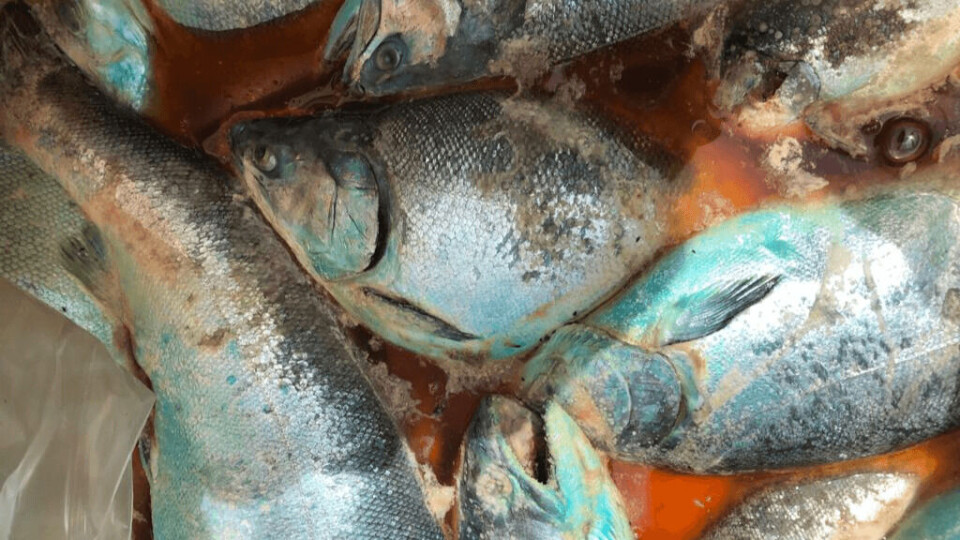
Chile: Workers warn of health threat as salmon rot in process plants
Thousands of salmon are rotting in processing plants in the Chilean city of Quellón and fish are dying of starvation in collection centres because roadblocks are preventing feed being delivered.
Quellón, in the south of the island of Chiloé in the Los Lagos region, is the salmon producing area most affected by the social unrest that has erupted in the country over the last fortnight over increasing inequality.
Processing plants belonging to AquaChile, Marine Farm, Yadran, Salmones Austral, Surproceso and Salmones Cailín have now been paralysed for more than a week.
Marta Oyarzo, president of Yadran No.2 Union and spokesperson for the National Coordinator of the Salmon Industry and Related Branches, said that protesters continue to block the access routes to Quellón, barring people access their work at process plants and stopping trucks that transport supplies for the work and food for the fish.
‘Our people are desperate’
“Our people are desperate, and no authority has ruled on this very serious problem,” Oyarzo told Fish Farming Expert’s Chilean sister site, Salmonexpert.
“After forming a salmon union work table (congress), we assembled more than 1,000 workers who openly expressed their willingness to return to their jobs, without industry pressures, but because of their economic needs.”
In addition to the labour concern, Oyarzo said: “We have an alarming health contingency, which I don’t know who will take care of.
“In the collection centres of the Quellón process plants, there are 800,000 fish that have not been fed for more than a week, so they are beginning to die, because they cannot be taken out of it because of this situation.”
‘High bacteriological levels’
She added that inside the plants “there are more than 30,000 dead and rotting salmon, with a high content of hydrogen sulphide and high bacteriological levels, in some cases”.
The union chief warned that international certifications required for export are based on safety and could be lost if the situation continues “because of the risks that this problem implies for human health”.
Oyarzo continued: “This mortality will generate immense pollution in Quellón Bay”, adding that the companies in the area are moving their fish to other places to process them, “so the labour issue is uncertain in Quellón for the workers of the industry”.
She said that although talks had taken place with workers from other sectors in Quellón, protesters continued to block the roads.
Agree with demands
“We call those who lead this movement to think about what they are carrying out, because although we agree with their demands, working to support our families is also a right not respected with all these actions.”
Further north in Calbuco, around 30 miles south of the salmon capital of Puerto Montt, Miriam Chavez, president of Union No.3 of Aguas Claras, said that AquaChile had chosen not to run the nightshift at its plant there “until further notice”, in order to protect its workers.
Australis Seafoods’ Fitz Roy plant was closed after attacks on its windows, although was trying to resume production.
Chavez said the Camanchaca and Mowi plants are paralysed in Calbuco but were hoping to process again as soon as possible.
For now, in Calbuco, the biggest concern of salmon farmers has to do with the fact that “if they take the staff out of the processing plants, there are workers willing to confront those groups of protesters, who arrive with violence to realise their actions. We do not want to risk lives”.























































